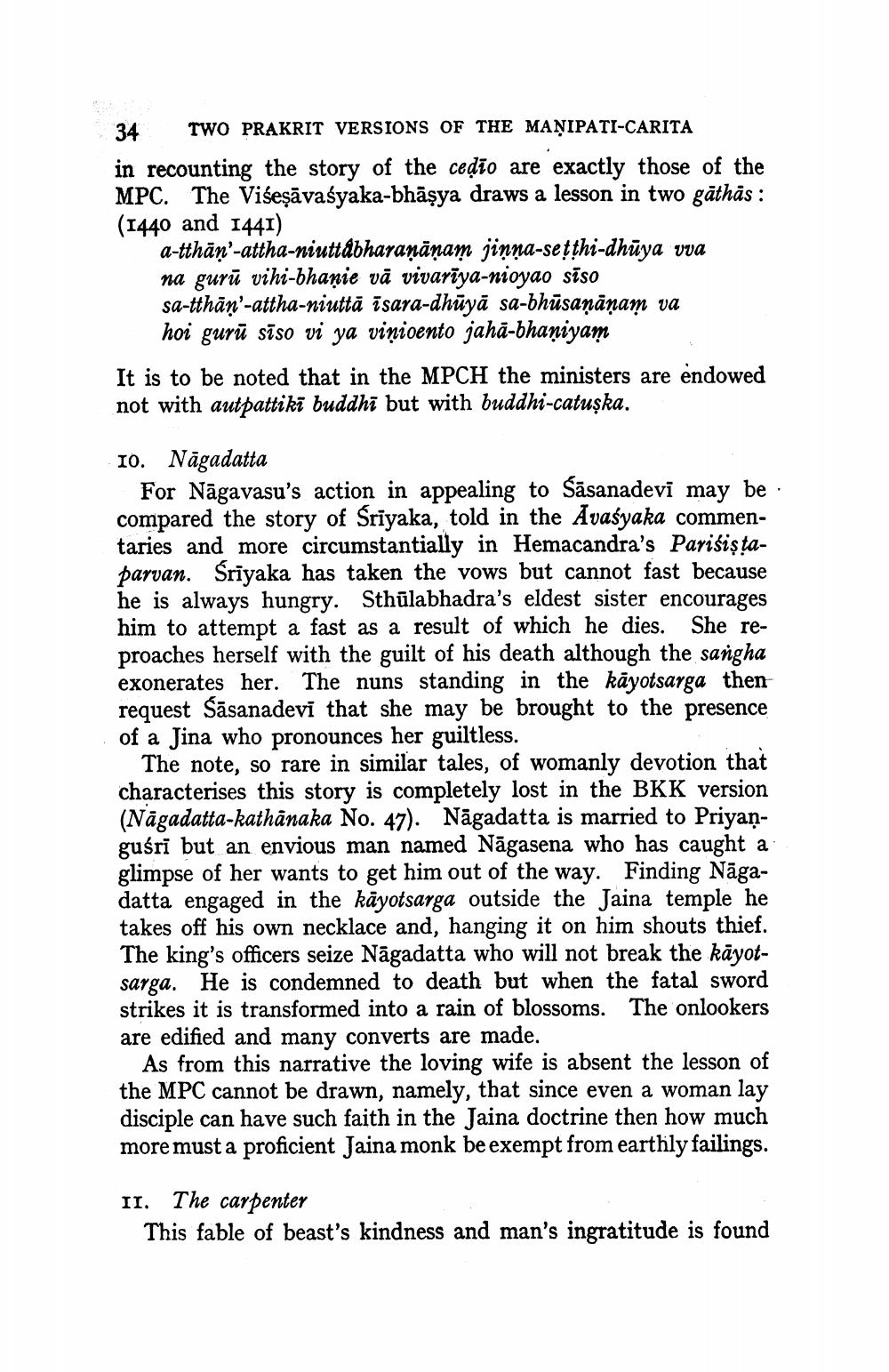________________
34 TWO PRAKRIT VERSIONS OF THE MAŅIPATI-CARITA in recounting the story of the cedio are exactly those of the MPC. The Viśeşāvaśyaka-bhāşya draws a lesson in two gāthas: (1440 and 1441)
a-tthāņ-attha-niuttabharaṇānam jinna-seţthi-dhūya vva na gurū vihi-bhanie vā vivarīya-nioyao siso sa-tthān’-attha-niuttā īsara-dhūyā sa-bhūsaņāņam va
hoi guru sīso vi ya viņioento jahā-bhaniyam It is to be noted that in the MPCH the ministers are endowed not with autpattikī buddhi but with buddhi-catuṣka.
10. Nāgadatta
For Nāgavasu's action in appealing to Śāsanadevi may be compared the story of Sriyaka, told in the Avaśyaka commentaries and more circumstantially in Hemacandra's Parisistaparvan. Sriyaka has taken the vows but cannot fast because he is always hungry. Sthūlabhadra's eldest sister encourages him to attempt a fast as a result of which he dies. She reproaches herself with the guilt of his death although the sangha exonerates her. The nuns standing in the kāyotsarga then request Śāsanadevi that she may be brought to the presence of a Jina who pronounces her guiltless.
The note, so rare in similar tales, of womanly devotion that characterises this story is completely lost in the BKK version (Nāgadatta-kathānaka No. 47). Nāgadatta is married to Priyanguśri but an envious man named Nāgasena who has caught a glimpse of her wants to get him out of the way. Finding Nāgadatta engaged in the kāyotsarga outside the Jaina temple he takes off his own necklace and, hanging it on him shouts thief. The king's officers seize Nāgadatta who will not break the kāyotsarga. He is condemned to death but when the fatal sword strikes it is transformed into a rain of blossoms. The onlookers are edified and many converts are made.
As from this narrative the loving wife is absent the lesson of the MPC cannot be drawn, namely, that since even a woman lay disciple can have such faith in the Jaina doctrine then how much more must a proficient Jaina monk be exempt from earthly failings.
II. The carpenter
This fable of beast's kindness and man's ingratitude is found




